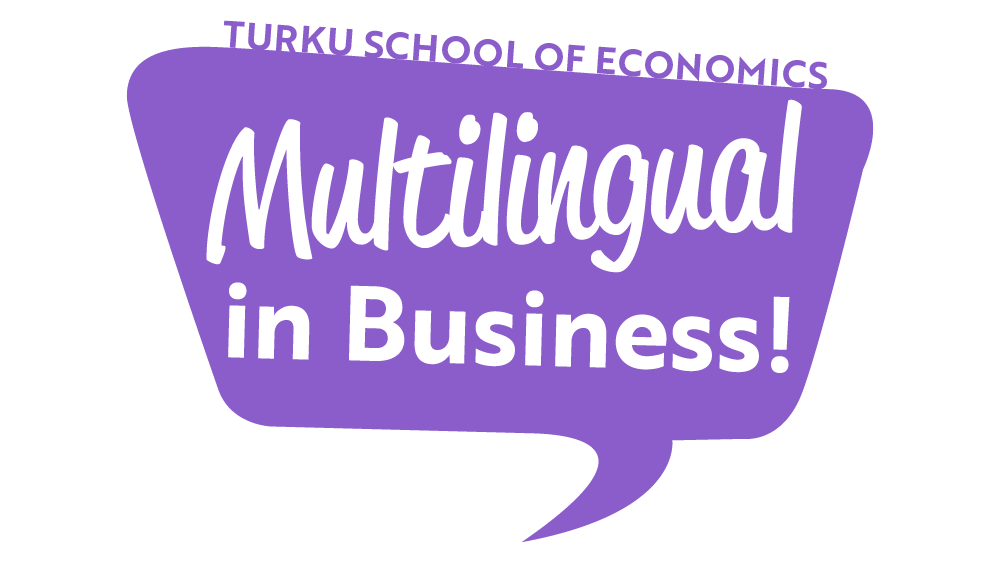Multilingual in Business!

Plurilingual and intercultural proficiency are a part of the key competences in international business. In companies operating internationally, business people use several languages at the same time, switching and mediating between languages and cultures.
Based on the key results of the Pluriling Study, an innovative language module Multilingual business communication has been introduced at the Turku School of Economics.
Pluriling Study in a nutshell
Key questions:
- How plurilingual are people in IB?
- Isn’t one lingua franca enough?
- Which plurilingual competences are needed in international business communication?
The Pluriling Study (a language needs analysis):
- Focus on alumni of Turku School of Economics, mainly with major International Business and alumni working abroad
- Online survey 2014, number of respondents: 214
- With support of Liikesivistysrahasto | Foundation for Economic Education
Results:
- The staff is plurilingual, mastering six or more languages (44 %) or five languages (38 %)
- Multilingual situations are normal, 53 % experience them always or daily
- Typical multilingual situations are mostly internal communication with colleagues and in meetings. They are about negotiations, decision making, and small talk (= relational communication).
- Multilingual communication typically consists of combinations with English and Finnish, Swedish or German; combinations with two (foreign) languages are the most frequent, but combinations with three languages occur often.
Plurilingual proficiency:

Plurilingual proficiency is the ability to use three or more languages for the purpose of communication with specific skills bridging the gap between the languages:
- Language alternation:
"Aiemmassa työssä saksassa sai vaihtaa saksa-englanti-suomi kielten välillä 20-30 kertaa päivässä." - Code-switching:
"On helpompaa ja tehokkaampaa käyttää code-switchingiä kuin hidastaa keskustelua etsimällä oikeaa termiä pääasiallisella kielellä, kun kummatkin osapuolet ymmärtävät myös muunkielisen termin." - Mediating:
"Monikielisiä keskusteluharjoituksia, lennosta tulkkaamista toisille opiskelijoille mitä keskusteltiin." - Transfer:
"Eri kielien osaaminen ja ymmärtäminen (ymmärtäminen esim. kun osaa espanjaa, mutta ei italiaa, niin italiankielisen E-mailin lukeminen saattaa silti onnistua)."
Quotes from the TSE-alumni, Pluriling Study
With support of Liikesivistysrahasto / Foundation for Economic Education.